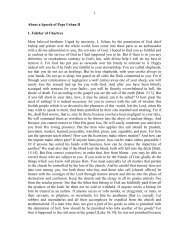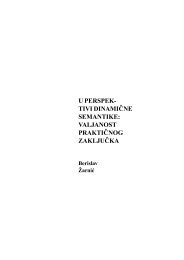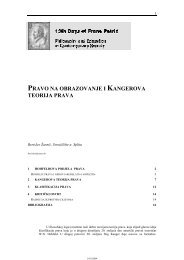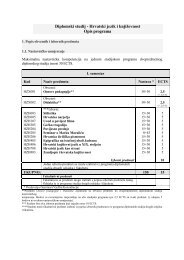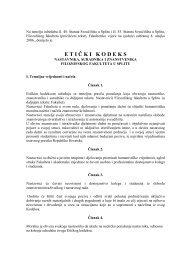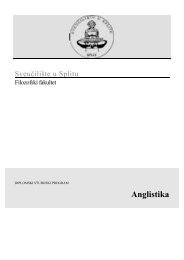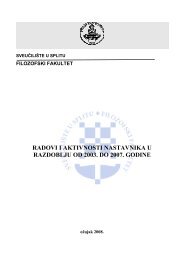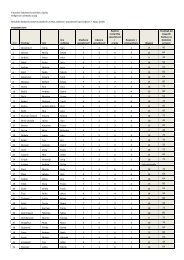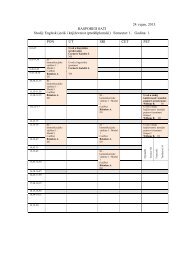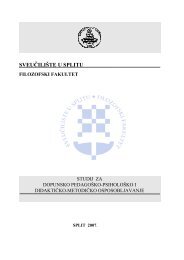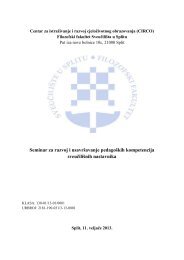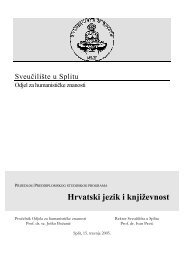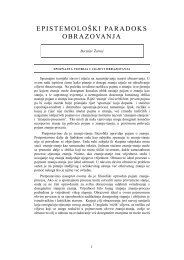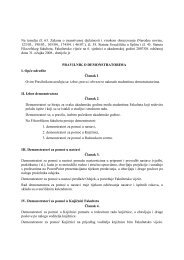English Studies
English Studies
English Studies
You also want an ePaper? Increase the reach of your titles
YUMPU automatically turns print PDFs into web optimized ePapers that Google loves.
G R A D U A T E D E G R E E P R O G R A M M E : E N G L I S H S T U D I E S<br />
Teaching<br />
methods<br />
Assessment<br />
methods<br />
Language of<br />
instruction<br />
Quality<br />
assurance<br />
methods<br />
London: Continuum.<br />
Toolan, M.J. (1998). Language in Literature: An Introduction to Stylistics.<br />
London: Arnold.<br />
Wales, K. (2001). A Dictionary of Stylistics (2nd edn.). Harlow: Longman.<br />
Selected articles from Language and Literature (London: Sage<br />
Publications).<br />
Lectures (student-participation-encouraged) / Seminars (discussion, seminar<br />
papers, reports, etc.) / Advisory hours / Research project / Independent<br />
research / Independent study.<br />
Student participation is encouraged through various tasks and activities,<br />
such as: problem-solving tasks, group work, pair work, etc.<br />
The assessment of student knowledge/performance will be based on the<br />
following:<br />
1. Continuous assessment (diagnostic tests, independent homework/project<br />
tasks, achievement tests)<br />
2. Exam: written and oral<br />
<strong>English</strong><br />
1. Anonymous student feedback via questionnaires and surveys (permanent<br />
online anonymous commenting facility and via paper questionnaires).<br />
2. Lecturers responsible for the same subject area collaborate closely and<br />
monitor each other’s work.<br />
Course title Philosophy of Language<br />
Course code HZE805<br />
Type of course Lecture + Seminar / Advisory hours<br />
Elective course<br />
Level of course Specialised level course<br />
Year of study Second Semester Three<br />
ECTS<br />
(Number of<br />
credits allocated)<br />
Name of lecturer<br />
Learning<br />
outcomes and<br />
competences<br />
3 ECTS<br />
Contact hours (15 lectures + 10 seminars + 5 advisory hours) = 0.75 credits.<br />
Student study time (67.5 hours) = 2.25 credits.<br />
Prof Dr Dunja Jutronić<br />
After the completion of the course, the students will acquire the following<br />
competencies:<br />
1. Intellectual skills including the acquisition of concepts and principles which<br />
connect linguistics and philosophy of language<br />
2. Practical skills in the analysis of different texts and critical evaluation of<br />
ideas<br />
3. Communicative skills in essay writing and oral presentation, and most<br />
importantly<br />
4. Sensitivity to the interdisciplinary approach.<br />
41



